Life Sciences News
See our Latest Journal Publications
Exploring Europe's key Stone Age site: The major underwater scientific expedition to preserve history
Led by Professor Robin Allaby, a new expedition is set to delve into Europe’s pivotal Mesolithic Stone Age site, Bouldnor Cliff. The expedition is a race against time to the submerged prehistoric settlement as erosion threatens its complete loss.
Press Release (26 April 2024).
The sound of the underground: What noisy worms tell us about soil health
Researchers are listening to earthworms to monitor soil health, in what could be a major innovation for maintaining soil health. In the first study of its kind, scientists are using a technique called ecoacoustics to listen to the activity of earthworms and other invertebrates in the soil. The theory is that a noisy soil is a healthy soil – and that the sounds generated in soil can be recorded, measured and used to evaluate soil condition. Press release (14 July 2023)
Jackie was interviewed about the research by David Gregory-Kumar for BBC Midlands Today.
Watch the interview (16 July 2023)
ENABLE workshop: Are the university learning environments as inclusive as we think?
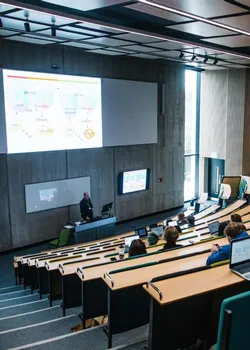 On Friday 29 September 2023, the School of Life Sciences will be hosting a free workshop: "Are the university learning environments as inclusive as we think? An investigation from the awarding perspective".
On Friday 29 September 2023, the School of Life Sciences will be hosting a free workshop: "Are the university learning environments as inclusive as we think? An investigation from the awarding perspective".
Based on a thorough data analysis from recent years and first-hand practical experience, the workshop will identify existing reasons for lack of inclusivity and unbiased awarding in biological science and related degree streams.
The workshop participants, comprising academic leaders, teaching professionals and a diverse student community, will also provide on consensus recommendations on how to close existing awarding gaps for a more inclusive learning and teaching environment throughout the UK.
Consensus recommendations will be published in a peer-reviewed journal.
Faculty Post Doc Prizes awarded to Amol Bhandare and Richard Guillionneau
Each year, the Faculty of Science, Engineering and Medicine (SEM) funds a prize for the best Warwick-affiliated research output from an Early Career Researcher (ECR). Each department nominates a winner out of the applications received after a judging process as determined by the Faculty. This year the School of Life Sciences has awarded two prizes:
- Dr Amol Bhandare
- Dr Richard Guillioneau
The Panel recognised the scientific excellence of the research published in these outputs and the leading roles that both researchers had taken in conceiving and undertaking the research.
Honorary Fellow
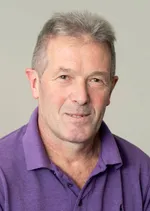 Professor Murray Grant has been re-elected as an Honorary Fellow of the Academy of the Royal Society of New Zealand. Fellows have made contributions to knowledge at the highest levels in their different fields and across disciplinary boundaries. Find out more
Professor Murray Grant has been re-elected as an Honorary Fellow of the Academy of the Royal Society of New Zealand. Fellows have made contributions to knowledge at the highest levels in their different fields and across disciplinary boundaries. Find out more
Four new academic positions available in the School of Life Sciences
We wish to appoint four excellent and ambitious early to mid-career principal investigators who are capable of developing innovative and original research programmes:
- 2 x Permanent positions focused on Host-virus Interactions
- 1 x Permanent position focused on Plant Virology
- 1 x Permanent position focused on Host Responses to Microbes
Our Technical Talent
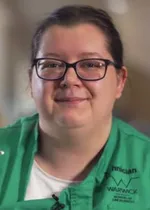 Over the next few weeks the University is showcasing the vital roles our technical staff play in the world-class research and teaching at Warwick. The latest video features Georgia Lavender, Senior Teaching Lab Technician, from the SLS Teaching Lab.
Over the next few weeks the University is showcasing the vital roles our technical staff play in the world-class research and teaching at Warwick. The latest video features Georgia Lavender, Senior Teaching Lab Technician, from the SLS Teaching Lab.
Watch the video.
Warwick included in ancient DNA compilation celebrating Nobel Prize
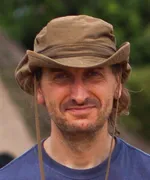 Nature Portfolio has compiled a collection of key ancient DNA papers in celebration of the Nobel Prize in Physiology or Medicine award to the field’s principal pioneer, Svante Pääbo, which includes the work of Professor Robin Allaby published in Nature Reviews Methods Primers. The paper outlines the best current methodological approaches to the field, the wide range of applications possible and ethics involved. The primer is freely available for a month.
Nature Portfolio has compiled a collection of key ancient DNA papers in celebration of the Nobel Prize in Physiology or Medicine award to the field’s principal pioneer, Svante Pääbo, which includes the work of Professor Robin Allaby published in Nature Reviews Methods Primers. The paper outlines the best current methodological approaches to the field, the wide range of applications possible and ethics involved. The primer is freely available for a month.
The Nobel Prize was awarded in particular for the discoveries concerning the genomes of extinct hominins and human evolution which has dramatically changed how we understand human evolution and contributes to our understanding of modern-day human physiology. At Warwick, Professor Allaby has applied ancient DNA to past genomes of crop plants which is rewriting our understanding of domestication, recently reviewed in Trends in Ecology and Evolution.
New insights into how cyanobacteria regulate zinc uptake in the open ocean
Marine cyanobacteria (blue-green algae) are major contributors to the global carbon cycle and are the basis of the food web in many of the world’s oceans. They only require sunlight, carbon dioxide, plus a panel of essential elements, including metals, to sustain life. However, little is known about whether and how cyanobacteria utilize or regulate zinc, an element often considered to be essential to life.
An interdisciplinary research team including Professor Dave Scanlan and Dr Alevtina Mikhaylina, has identified a remarkably efficient regulatory network that controls zinc accumulation in the open ocean cyanobacterium Synechococcus.
Press Release (9 June 2022)
“The future of women in STEM is bright but not secure”: Warwick climate scientist
Four female climate scientists from India, Pakistan, and Bangladesh — who are currently pursuing postgraduate studies in Life Sciences thanks to ‘Women in STEM’ scholarships between the University of Warwick and the British Council — share their experiences and reflections on the International Day of Women and Girls in Science 2022.
Press release (11 February 2022)
Digging for Britain - DNA testing
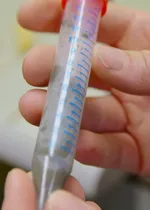 On 5 January Professor Robin Allaby featured in the BBC's Digging for Britain programme. He discussed the DNA testing of sediment from a Mesolithic settlement located on the seabed of the Solent. The analysis determined what was being eaten by the Mesolithic people. The appearance of wheat, 2000 years earlier than previously accepted was a major revelation.
On 5 January Professor Robin Allaby featured in the BBC's Digging for Britain programme. He discussed the DNA testing of sediment from a Mesolithic settlement located on the seabed of the Solent. The analysis determined what was being eaten by the Mesolithic people. The appearance of wheat, 2000 years earlier than previously accepted was a major revelation.
Watch on iPlayer (from 46:10)
COP26 – reflections on attending as an Observer from Warwick
 Professor Hendrik Schafer shares his reflections on attending COP26:
Professor Hendrik Schafer shares his reflections on attending COP26:
"When I was asked whether I’d want to be part of the delegation that the University sends to COP26 in Glasgow, I did not have to think about it for long, after all, Climate Change is the biggest challenge that we are facing as global human society. Although I only spent two days at COP, I look back at this as a positive and worthwhile activity.
Despite disappointment about the watered-down COP26 declaration, I think that COP26 has brought some progress overall. There is an increased sense of urgency and political will to start tackling the issue, and although I personally think that we need much faster and more ambitious action, any progress is welcome and significant. Annual submissions of national action plans will hopefully lead to increasing pressure on countries to accelerate action rather than delaying it, but the acid test will be whether actions will lead to a slowdown in greenhouse-gas emissions over the next few years.
Another important milestone is that protection and regeneration of natural ecosystems such as forests, mangroves, saltmarshes and seagrass meadows is finally recognised by COP as an important part of the strategy to combat climate change. Those coastal marine ecosystems, which are referred to as ‘blue carbon’ environments are incredibly effective carbon sinks, whose protection will not only ensure a contribution to carbon sequestration but enhance biodiversity and deliver a raft of positive ecosystem services. Nevertheless, there is a need to understand in more detail, how these ecosystems will respond to climate change and to monitor their actual C sequestration. These are research activities that we are in a good position to contribute to with several groups studying relevant environmental processes and trace gases. Another area that is getting more attention is the carbon footprint of agriculture, again an area where we have critical expertise and where SLS researchers can make contributions to the research agenda.
Whilst those are important areas where a more detailed scientific understanding is required, the basic science background of climate change has been clear for too long, with no sense of urgency and too little action. The key question is how we get society to make the changes that are required. I believe that creating a dialogue between citizens, scientists, business, and government at various levels will be vital for driving positive changes. There have been excellent examples at COP26 that illustrate the critical role of positive communication and citizen involvement and how these can lead to the creation of action plans at local and regional level with positive outcomes for local communities. It needs a few success stories that deliver positive change in quality of life and sustainability, which will hopefully increase the roll out of programmes for mitigation and adaptation measures, especially if there is a demand and acceptance from the public for positive action. The University is already looking at opportunities to engage with local community and governments to enhance sustainability in the region.
There is huge potential across the university to be a centre for climate action, going well beyond the research on innovation in the automotive sector, but also in the humanities, arts, economics, and of course Life Sciences."
Professor Hendrik Schaefer is part of expert delegation attending COP26
 Environmental microbiologist Professor Hendrik Schaefer is one of 17 University of Warwick delegates taking their expertise to COP26. The university is one of a limited number of institutions to have been granted official observer status by the UN-led conference, which is being hosted by the UK.
Environmental microbiologist Professor Hendrik Schaefer is one of 17 University of Warwick delegates taking their expertise to COP26. The university is one of a limited number of institutions to have been granted official observer status by the UN-led conference, which is being hosted by the UK.
Press release (20 October 2021)
Warwick COP26 researchers and academic experts attending announced (28 October 2021)
